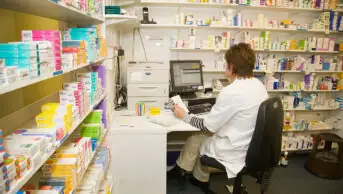
Shutterstock.com
The British Pharmaceutical Students’ Association (BPSA) has called for MPharms lecturers to improve their teaching skills after concerns were raised by students at the association’s annual conference.
In the BPSA’s policy statements for 2019, published on 14 October 2019, the Association said it “believes that those who teach on MPharm degrees should have some sort of teacher training”.
According to the Pharmacy Schools Council, teaching staff at higher education institutions (HEIs) are currently contractually obliged “to engage with recognised teacher training programmes”.
However, Regan McCahill, president of the BPSA, told The Pharmaceutical Journal that students have reported that some lecturers are lacking in public speaking skills and are “not necessarily communicating to the students as effectively as they could be”.
“There’s a misconception that by being knowledgeable in certain topic or subject, that automatically makes you a good teacher and students are finding that that’s just not the case,” she said, adding that lecturers should “be able to impart the knowledge that we need to do this demanding job that we’re getting prepared for”.
When asked whether students felt underprepared for their pharmacy career due to the quality of teaching, McCahill said: “It would vary from student to student and from school to school as well”.
“There is a feeling that we’ve actually paid a lot of money to have this teaching and it should be at a certain level,” she continued.
Her comments come after the General Pharmaceutical Council said in its September 2019 board papers that it would be launching an investigation after the gap in overall pass rates for preregistration students from the highest- and lowest-performing pharmacy schools rose by ten percentage points in 2019, compared with 2018.
Duncan Craig, chair of the Pharmacy Schools Council, said the Council is “happy to engage with the BPSA on this”, but added that teacher training has been in place “for many years”.
“It is current practice for staff, who are contractually obliged to teach, to engage with recognised teacher training programmes on joining the HEI, typically leading to Fellowship of the Higher Education Academy. This would be part of their probation; hence, is a compulsory requirement,” he said.
The 2019 policy statements were debated and voted on by 150 delegates at the BPSA’s annual conference in April 2019.
Other statements include a call for all pharmacists in the UK to “offer emergency hormonal contraception, regardless of their personal, ethical or religious beliefs” and a that “cuts made by Health Education England (HEE) to hospital pre-registration training funding should be stopped or reversed”.
HEE said in February 2019 that proposed cuts of up to 25% in salary support for NHS pre-registration trainees will be “paused” for one year.


